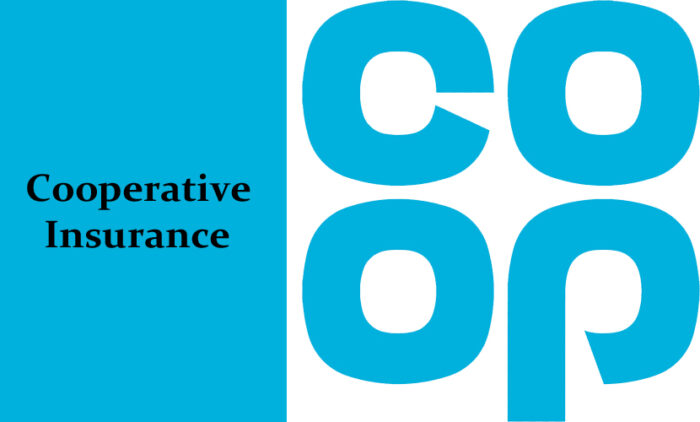What is cooperative insurance, and how does it work? Cooperative, or “co-op,” insurance is categorized under property and casualty insurance designed for owners of co-op apartments or other organizations. Typically, these policies offer protection against losses affecting both the building and individual units.

However, coverage under this category of insurance includes burglary, fire damage, and liability, specifically for residential co-ops.
Common areas such as hallways, foyers, basements, roofs, elevators, and walkways are generally covered by the co-op building’s insurance policy.
Furthermore, while the co-op association’s insurance safeguards the building, it does not cover individuals.
Moreover, owners’ apartments are provided only if the damage is a result of something falling under the association’s jurisdiction.
How Cooperative Insurance Works
When purchasing a co-op apartment, it’s important to note that the building typically has an existing insurance policy. This policy is shared among the corporation that owns and authorizes the units, protecting various events such as lead paint exposure, sewer backups, earthquake damage, and other incidents that can impact the entire building.
Cooperative insurance presents an opportunity for policyholders to pool together with others who face similar risks, allowing them to acquire comprehensive coverage at a more affordable rate. In some cases, trade unions may also offer co-op insurance to address universally experienced risks, making group coverage economically sensible.
Understanding the coverage provided by the building association’s insurance policy is crucial. While the co-op association’s policy doesn’t directly cover an individual shareholder’s apartment and belongings, there are exceptions.
For instance, it may cover damages related to infrastructure issues, like a leaky radiator destroying a unit’s floor or a water pipe causing cracks in the ceiling. In these specific cases, the building association may cover the cost of repairs.
How Much Does Cooperative Insurance Cost?
Before securing financing for an HO-6 policy, it’s important to conduct a thorough review of your condominium or cooperative association’s master policy.
The coverage depends on items such as kitchen appliances, carpets, or light fixtures, as well as the property coverage amount, which can significantly impact your costs.
When determining the appropriate liability coverage, it’s essential to assess potential financial losses in the event of a lawsuit. Consider factors such as savings, investments, vehicles, and other valuable possessions.
In general, premiums for condo and co-op policies tend to be more affordable than traditional homeowners’ insurance but more costly than renters’ policies.
The complexity of condo policies and association bylaws can make it challenging to select the right insurance coverage. Seeking guidance from a qualified insurance agent can prove highly beneficial.
Who Needs Cooperative Insurance?
Condominium and cooperative owners commonly uphold two insurance policies for comprehensive protection: a master policy and an individual HO-6 policy. When financing a condo or co-op, lenders mandate hazard insurance coverage to safeguard their investment, as stipulated in mortgage agreements.
For co-op residents, it is essential to specify which unit is covered by the association’s master policy through their individual policies. Residents can seek guidance from the co-op board, condo association, insurance provider, or a trusted lawyer.
What Does Cooperative Insurance Cover?
Just like homeowners insurance coverage, cooperative insurance covers certain things in a co-op apartment or condominium, and they include:
Dwelling Coverage
Coverage for the dwelling includes structures under your responsibility, which include your living space, along with enhancements, modifications, expansions, and similar aspects.
Personal Property Coverage
Coverage for belongings like clothing, furniture, and electronics falls under personal property protection. This refers to possessions that you own.
Loss Of Use
In the event your residence becomes uninhabitable, loss of use coverage comes into play, assisting with alternative living arrangements.
Additional Living Expenses Coverage
Coverage for additional living expenses (ALE) covers extra costs associated with temporary accommodation, like hotel stays or dining out. These arise from a covered loss, such as the restoration of your kitchen after a fire.
Personal Liability Coverage
Protection for actions leading to bodily injury or property damage to a third party is provided through personal liability coverage.
This safeguards you in situations where you may face a lawsuit or unintentionally cause harm to others.
Medical Payments To Other
Coverage for guest medical payments takes care of the medical expenses of visitors injured on your property or due to your actions. This also helps individuals intending to avoid potential lawsuits.
What Doesn’t Cooperative Insurance Cover?
Your co-op’s master policy may not cover water damage, making it significant to obtain sufficient coverage on your cooperative insurance policy.
Protection against specific risks like earthquakes, floods, and sinkholes might require separate policies, as these damages are typically not included.
However, exclusions in homeowners policies, such as wear and tear, intentional damage, and termite, are also not covered by most cooperative insurance policies.
The cooperative’s master insurance covers the building, shared property, and liability linked to daily operations or negligence.
Moreover, individual unit losses from burglary, smoke damage, or other covered damages are not covered by the master policy.
Why Is It Important To Have Cooperative Insurance?
If you are a policyholder, your insurance should offer you the best protection for your lifestyle and possessions.
While your co-op homeowners association may have insurance covering property, buildings, and common areas, it does not extend to your personal belongings.
Therefore, it’s important to ensure that all your belongings and potential liabilities are safeguarded, considering the cumulative value of these possessions.
How to Buy Cooperative Insurance
Insurance for a co-op or condo can be obtained from typical property and casualty (P&C) insurance companies, agents, or brokers.
Providers offer multi-policy discounts, especially if you choose to bundle your co-op or condo insurance with your auto insurance policy.
Before initiating the search for insurance, request a copy of the master policy and ensure that you comprehend your responsibilities for coverage. Your insurance agent can provide valuable guidance in this process.
For more information on the average HO-6 policy premiums by state, you can refer to data provided by the National Association of Insurance Commissioners (NAIC).
Conclusion
Usually, a co-op association’s insurance policy covers the building, excluding damages to individual apartments.
However, an exception exists if the damages result from something the association is responsible for, like ensuring the safety of roofing or walkways.
Additionally, co-op shareholders can purchase cooperative policies to safeguard themselves and by combining owners for an affordable rate.



